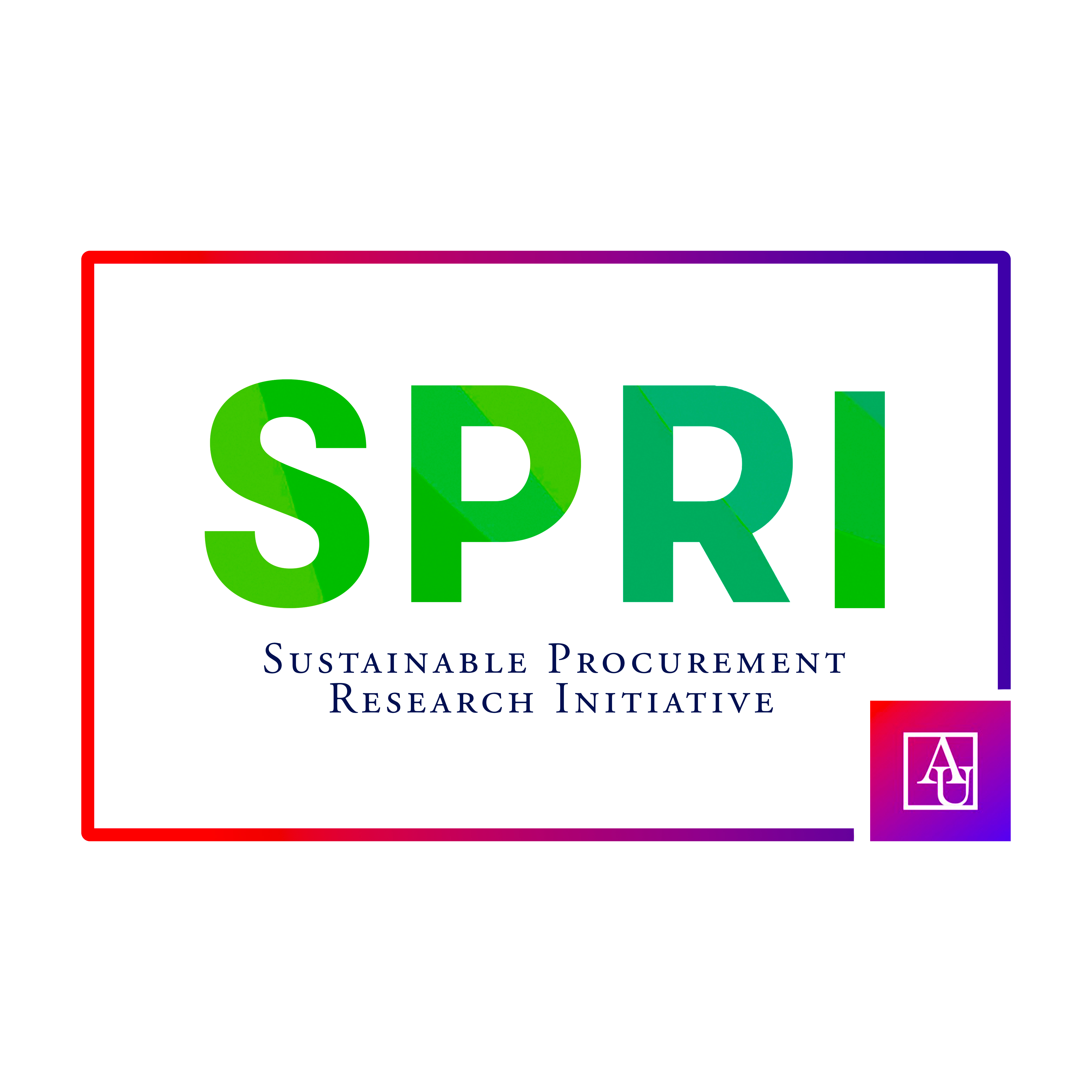
Sustainable Procurement Research Initiative
This article discusses the key findings of a recent report that was developed in collaboration with researchers at the Faculty of Social Sciences, Charles University, Ambis University, a.s., VŠB Technical University, University of Girona, and the Sustainable Procurement Research Initiative of Kogod School of Business and School of Public Affairs, American University.
Public procurement—the way governments purchase goods and services— contributes to economic growth and functions as an important facet of government machinery. In the Czech Republic, public procurement represents about 12.5% of the country’s total economic output. Increasingly, it’s being recognized as a strategic tool that local governments can use to tackle global challenges like climate change and the energy crisis.
One promising approach gaining attention is Green Public Procurement (GPP). This involves integrating environmental considerations into purchasing decisions, such as choosing energy-efficient products, sustainable construction materials, or services that support eco-friendly practices. Especially in countries like the Czech Republic—where decision-making is highly decentralized and municipalities are central to delivering public services—GPP offers an important opportunity to promote sustainability from the ground up.
Despite its potential, there’s still limited information on how widely GPP is being used by Czech municipalities, or how effective these efforts have been. To better understand the situation, researchers from American University, Charles University, Ambis University, and the Technical University of Ostrava conducted a study of 304 municipal politicians and directors from a representative sample of over 6,000 Czech municipalities.
What the Study Found
The results showed a mixed picture. Only 33% of municipalities reported having a formal green purchasing policy in place. Among those, just over half—58%—said they were successfully implementing it. These numbers reveal both encouraging progress and a clear need for broader adoption.
Municipalities that had adopted green procurement practices shared some common traits. They were more likely to already have complementary environmental and social policies, such as, Energy and water conservation programs, Local recycling initiatives, and Internal sustainability audits. These municipalities also valued collaboration, often working across departments and supporting local businesses in meeting environmental goals.
When it came to deciding what to purchase, municipalities with GPP policies considered factors like environmental impact, life-cycle cost, and product recyclability more often than those without. They also had better access to environmental information and databases of socially responsible suppliers.
What Makes GPP Work?
Success wasn’t just about having the right policies. Municipalities that reported effective implementation also set specific sustainability targets, used ecolabels and environmental certifications, had strong support from top management, invested financial and human resources in GPP, and received help from external sources like subsidies or technical advice.
Interestingly, the study found a paradox. Some municipalities that rated their organizational culture and innovation practices positively were less successful in implementing GPP. This may reflect a broader challenge: a general hesitation across the public sector to embrace innovation and take risks.
Across the board—regardless of whether municipalities had a formal policy—there were shared priorities like cost-efficiency, past procurement experience, and community support.
Recommendations for Moving Forward
Based on the study’s findings, the researchers developed strategic recommendations to help Czech municipalities make better use of green public procurement. These include:
- Recognizing public procurement as a key tool for policy change
- Shifting from a “box-ticking” approach to one focused on accountability and results
- Setting measurable goals for green purchasing
- Encouraging cooperation between municipalities to share knowledge and resources
- Simplifying procedures like environmental assessments
- Offering training, tools, and public education to build awareness and capacity
Why This Matters
The path toward a more sustainable future requires more than big national strategies—it depends on thousands of small, everyday decisions made at the local level. Green public procurement empowers municipalities to lead by example, reduce environmental impact, and support local innovation and jobs.
While Czech municipalities have made important strides, there’s still plenty of room to grow. With the right support, tools, and commitment, GPP can become a cornerstone of local sustainability efforts—improving not just how governments buy, but how communities thrive.
